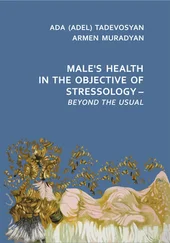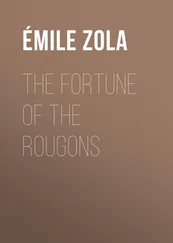The photographer’s display window changed each week, and now Paul awaited with disquiet the end of this week, which would mean the departure of the Ann that he had befriended in the meantime. At the same time, he would have to await the new Ann, whom he didn’t yet know and of whose arrival he wasn’t even certain.
On Saturday night he stayed downtown late in order to see her again and, as there were no longer many people on the street other than very rare passersby, since the Corso closed after 2 PM, he was able to stand there at ease, facing the window, to take his leave of this Ann, who two mornings from now would no longer be there. The lights went out, and in the semi-darkness of the window she seemed to be waiting for him and replying to him.
On Sunday morning a new smile, a new dress, a scarf, a hat, a gesture greeted him from the new photograph on display. How many photographs had Ann had taken? And why so many? Paul had never before been aware of her having a passion for having herself photographed, and aside from a few lover’s shots, most of them taken on trips, and a few small identity-card portraits she’d had made for her passport, he did not own a single photograph of her. Surely this was a new passion, a recent caprice, and, maybe to an even greater degree, a stock-taking, a matter of foresight in light of the opportunity of her trip. In fact, Ann had recently become a “figure” in Bucharest life, a “celebrity.” She was seen everywhere: at the theatre, at the race track, at soccer matches; her dresses were commented on, she was talked about and enjoyed having people talk about her.
Leaving Bucharest for an extended period, she risked slipping out of the limelight and losing her minor fashionable notoriety, which she had worked so hard to achieve. It was possible that the photographs she had left behind her had no purpose other than to maintain this notoriety, to prevent people from forgetting her. The display window projected an image that was all the more secure for not being in any way ostentatious; neither shots of current events nor political photographs were ever shown there, of the sort that attracted curious throngs, but rather art photography, portraits that appeared to be exhibited not so much for their subjects’ names, but rather for the quality of the negative and the delicacy of the composition, none of which prevented the most stellar names of Bucharest, whether royal, artistic or the wives of famous industrialists, from appearing.
In that selection of “expressive heads,” Ann took her place with simplicity, with a certain negligence, as if her photographs were so numerous and her appearance in each new display were so assured that Paul wondered with dismay whether there wasn’t something a little histrionic in her insistence on showing herself off and being seen. It sometimes seemed to him that her gestures, preserved in such living form, so talkative in her photographs, became the poses of a minor starlet, and he looked on them then with spite, with hostility — spite that faded away quickly, as he got used to the new photographs and felt a little as if, day by day, the heated intimacy between him and her grew tighter. In other summers he wouldn’t have let a single weekend go by without leaving Bucharest for the beach or the mountains, but now he refused every invitation, since he had the feeling that each Sunday morning he had an appointment he couldn’t miss, and in fact his first walk downtown was to the display window, where he looked — with such fear! with such disquiet! — for the new Ann for the week that was beginning.
Sometimes he came too early, the window wasn’t ready, and the cloth divider was pulled down like a curtain, behind which the new photographs were being arranged. Then Paul walked up and down the sidewalk, with a feeling of mixed impatience and security, as though he were walking in front of Ann’s apartment while she, upstairs in her room, was dressing, having sent him out to wait for her on the street: a feeling of security because he was certain she was going to come and in this respect nothing threatened him, yet also with impatience since he wondered what she would be like when she came downstairs, which dress she was going to wear, how pretty she would look.
One morning the cloth curtain rose in vain: Ann was missing from the window. Paul looked for her patiently, at first untroubled, examining portrait after portrait, at last alarmed, panic-stricken that she could possibly not be there, that he couldn’t find her. He would have liked to believe that it was a mistake or a joke, that she was hiding and was about to suddenly appear before him. He would have liked to say to her, as he had in the old days: “Come here, Ann. Stop it. You’re fooling around too much…”
He stood riveted there with a crumbling feeling; he felt as though he were losing her again, as though he saw her leaving again, perhaps this time for good.
“I have to see her,” he said in a loud voice. “I have to see her, at any cost.”
Three days later he was in Liège. He had left madly within a few hours, with the little money he was able to scrape together, with a passport acquired at the last minute, taking the longest and cheapest route, in third class via Poland and Germany, changing trains several times, waiting in a variety of stations for complicated connections to Berlin, Cologne and Hegenrath and finally arriving in Liège in the middle of the night, his head reeling with sleeplessness and strain. The whole time he told himself that he was acting like a lunatic, that he was making himself ridiculous, that the woman he was seeking was irrevocably lost to him, and that in any case he would now lose her forever by throwing himself at her; yet nothing could stop him from pursuing this absurd path, which he had entered with his eyes closed.
There had been a single moment of hesitation on the morning of his departure. He was at the Ministry of the Interior, in the office of a Subsecretary of State whom he knew, and whom he had come to see to ask him for a passport. On the wall above the desk was one of Ann’s paintings: a sandy Balcic with a few rough, dusty plants, almost whitish and with a single corner of sea, of an intense blue.
Paul sat looking in the direction of the painting. What was it doing in this office? Who had bought it, and why? Still young, the Subsecretary was known to have had romantic liaisons in the theatre world, which people talked about exceedingly openly, and which not even he forced himself to hide very much.
“What are you thinking about?” he asked Paul, taking the written request from his hand.
Paul didn’t reply. It was difficult for him to take his eyes off Ann’s signature, in the bottom corner of the canvas, her oblique, fine signature, almost covered by the frame.
He received the signed form and wondered what he would do with it now: it all struck him as useless, meaningless.
“Go to the police station. I’ll phone them in the meantime. In half an hour, by the time you get there, your passport will be ready.”
And as he remained silent, still staring up towards that unexpected Balcic on the wall, the Minister, too, turned his head towards the painting, measured it with his eye with a certain surprise, as though he were looking at it carefully for the first time, then, turning back towards Paul, he smiled. “Sweet girl, eh?”
There was something bewildering about the whole trip: he crossed countries he didn’t know, he waited for connecting trains in tiny border towns, at night he looked out the open window of the carriage: the endless, desolate countryside of Poland, sad and barren-looking in the middle of summer; he read in passing the names of German stations as he would have read them from the dial of his radio: Beuthen, Gleiwitz, Breslau. Everything flowed past him, half dream-like, uncertain, strange and yet indifferent: somewhere far away, at the end of the road, was Ann.
Читать дальше












